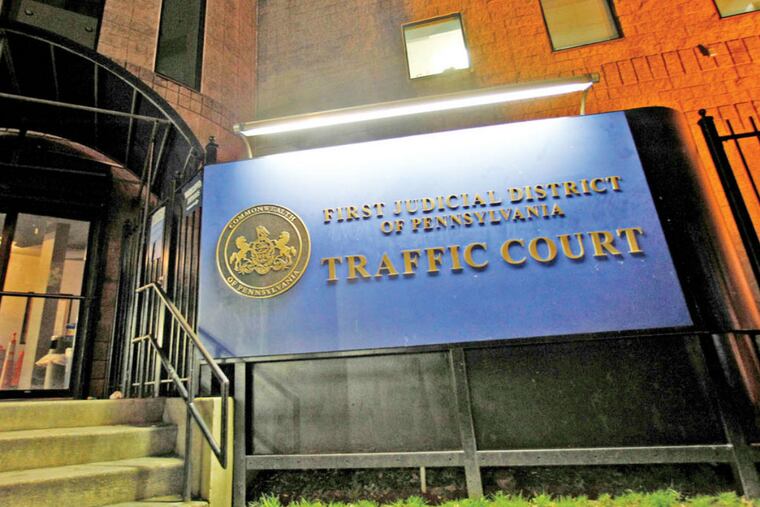Inquirer editorial: One last fix for Phila. Traffic Court
The freewheeling former Philadelphia Traffic Court, where tickets were fixed for gifts of crab cakes and porn or just to keep political bosses happy, could soon be officially relegated to the history books where it belongs. As voters contemplate whether to abolish a court that brought so little justice and so much embarrassment to the city, they should consider the real justice that was visited upon the court.

The freewheeling former Philadelphia Traffic Court, where tickets were fixed for gifts of crab cakes and porn or just to keep political bosses happy, could soon be officially relegated to the history books where it belongs. As voters contemplate whether to abolish a court that brought so little justice and so much embarrassment to the city, they should consider the real justice that was visited upon the court.
Traffic Court was so corrupt that a federal jury found four of its judges guilty of lying to a grand jury or the FBI in a sprawling ticket-fixing case. Three more pleaded guilty to fixing tickets, one of them in exchange for the seafood and dirty DVDs. Another, found not guilty in the ticket-fixing case, pleaded guilty to separate tax charges.
In 2013, after the scandal erupted, the state legislature wisely shut down Traffic Court's operations. Traffic violations since then have been handled in Municipal Court, where the judges actually have law degrees.
That wasn't a requirement for Traffic Court judges, though unflinching loyalty to the city Democrats (or, at one time, Republicans) was. The court in turn ensured that those connected to the Democratic political machine enjoyed leniency while the rest of us paid the fines.
Voters should close the lid on Traffic Court on April 26 by agreeing to eliminate it from the Pennsylvania Constitution. The ballot question asks, "Shall the Pennsylvania Constitution be amended to abolish the Philadelphia Traffic Court?" The answer should be a resounding YES.
Voters will also be asked if the mandatory judicial retirement age should be increased from 70 to 75. Under current circumstances - with a judiciary wracked by scandal and chosen in low-profile elections swayed by party and special-interest backing - voters should not extend judges' tenures.
Even the state's highest court has been seriously compromised in recent years. Last fall's election filled three Supreme Court vacancies, two of which were attributable to scandal: Justice Joan Orie Melvin was convicted of using her state employees and offices for political purposes, and Justice Seamus P. McCaffery resigned amid allegations involving pornographic and bigoted emails, referral fees paid to his wife and top aide, and a fixed Traffic Court ticket. Only one of the departures, Chief Justice Ronald Castille's, was due to the mandatory retirement age. Last month, moreover, yet another Supreme Court vacancy was created when Justice J. Michael Eakin resigned over the email scandal.
Once judges are chosen based on qualifications and not just connections under merit-selection legislation that should be put before voters, Pennsylvanians should consider raising their retirement age. That time is not now. Voters should say NO to giving judges more time on the bench.